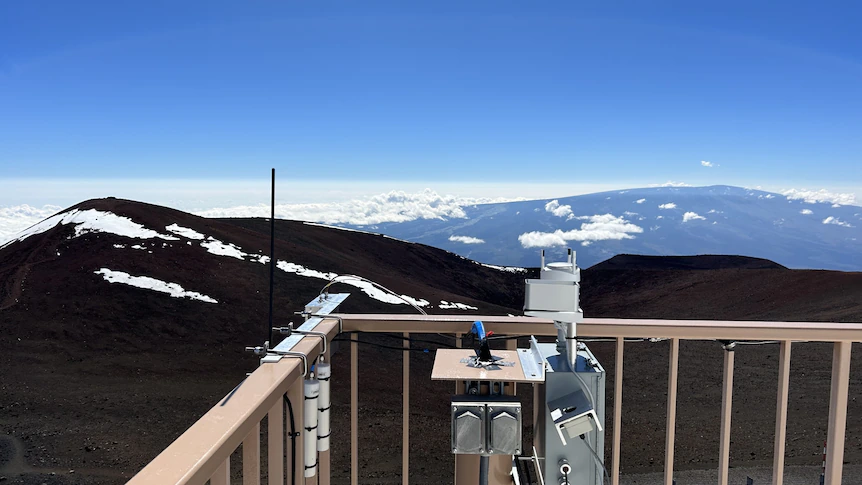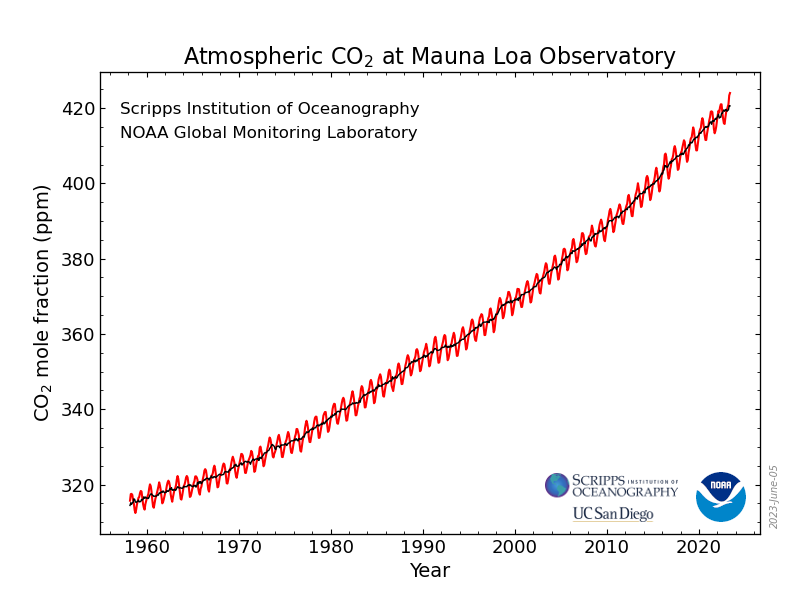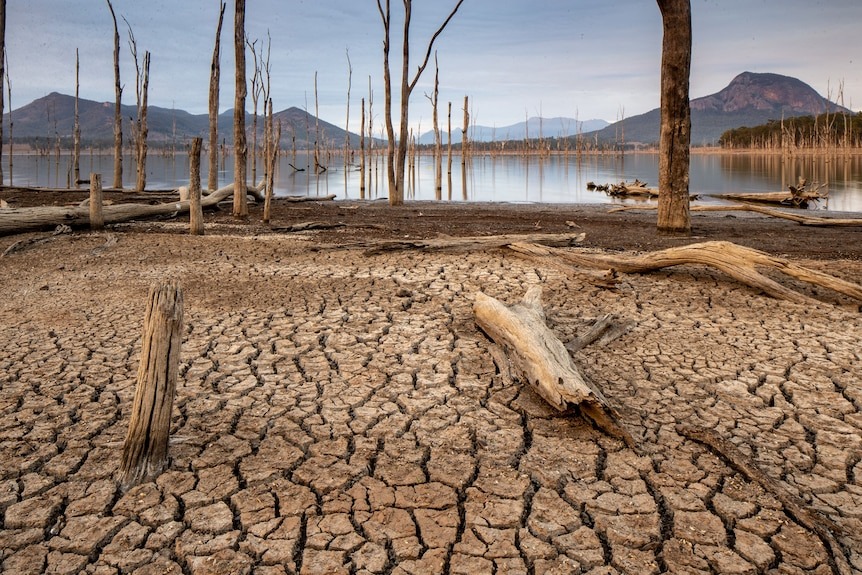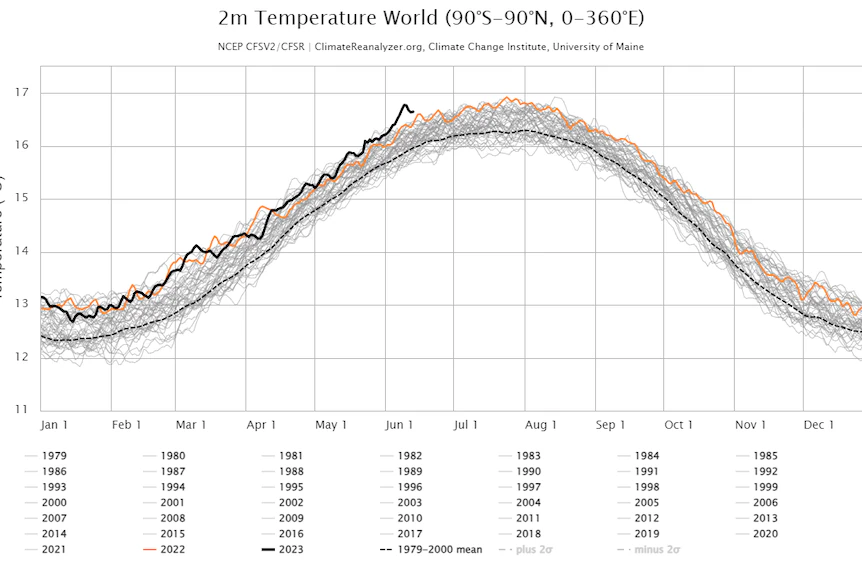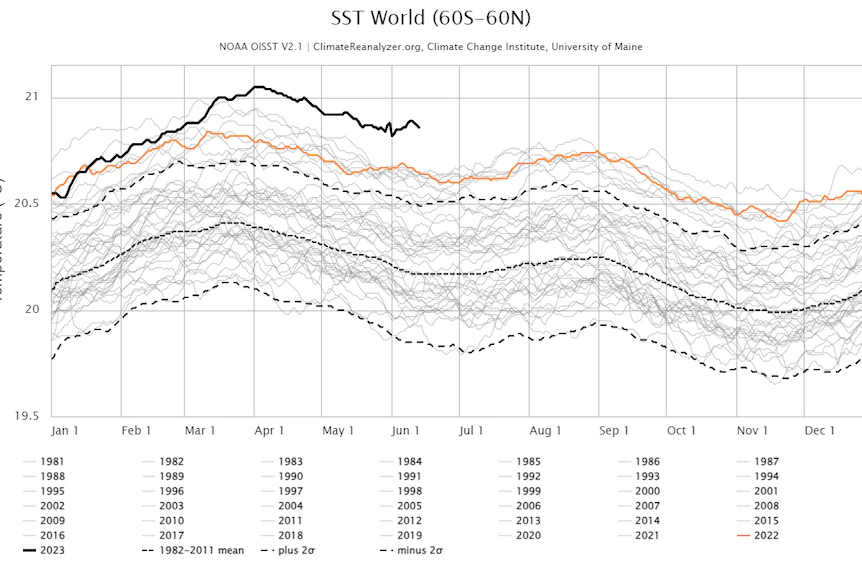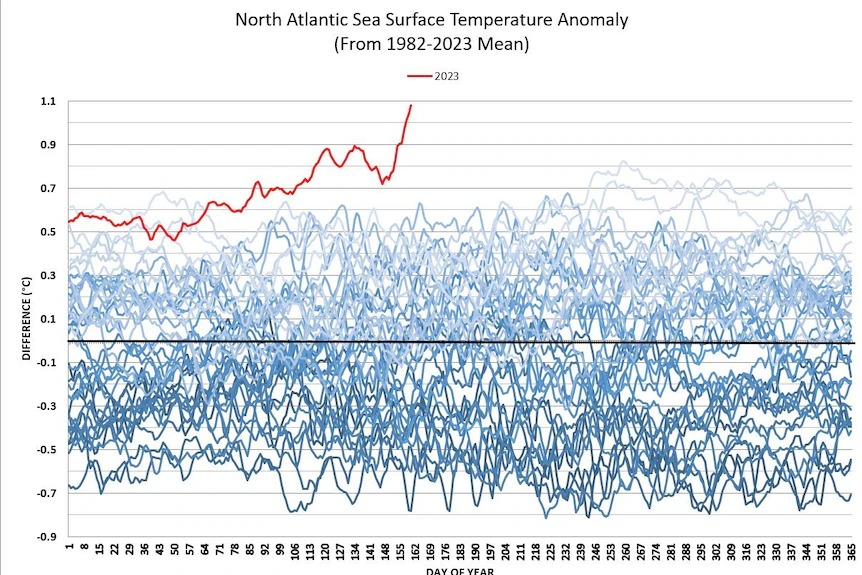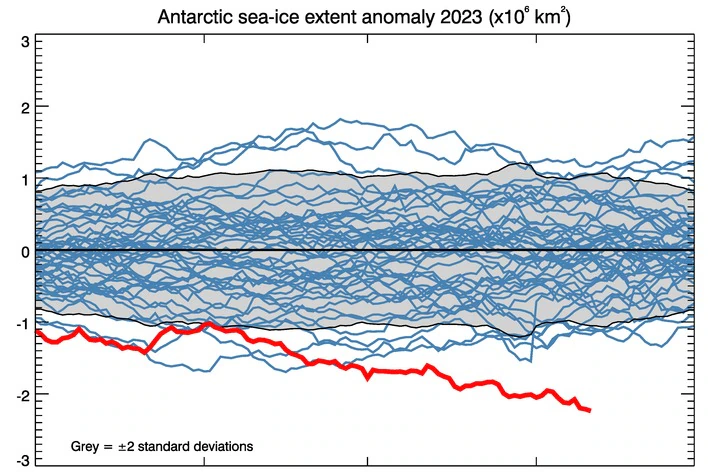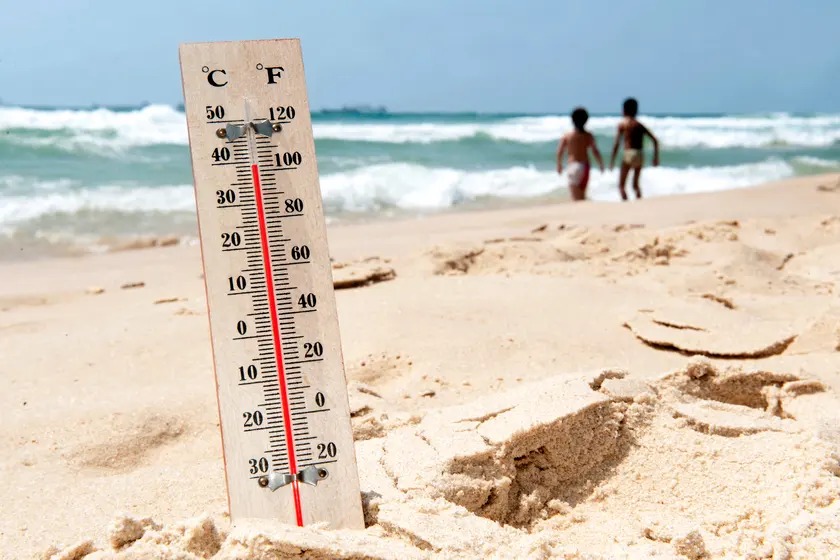
The World Meteorological Organization has released its latest climate predictions report, and the news is not great
The World Meteorological Organization (WMO) has released its climate predictions report for the next five years; frankly, the news is dire.
The WMO issues its Global Annual to Decadal Climate Update each year. The report aims to inform policy-makers by providing climate predictions for the upcoming years, in this case, 2023 to 2027.
“This report does not mean that we will permanently exceed the 1.5 °C level specified in the Paris Agreement which refers to the long-term warming over many years,” said Petteri Taalas, the WMO’s Secretary-General. “However, WMO is sounding the alarm that we will breach the 1.5 °C level on a temporary basis with increasing frequency.”
The WMO’s warning accompanies its prediction that there’s a 98% likelihood that at least one of the next five years will exceed the warmest on record. El Niño and climate change will likely drive this temperature spike.
“A warming El Niño is expected to develop in the coming months and this will combine with human-induced climate change to push global temperatures into uncharted territory,” said Taalas. “This will have far-reaching repercussions for health, food security, water management and the environment. We need to be prepared.”
An El Niño occurs when sea surface temperatures in the central and eastern tropical Pacific Ocean become substantially warmer than average, causing a shift in atmospheric circulation. More heat in the atmosphere and warmer ocean surface temperatures can lead to increased wind speeds in tropical storms and strongly affect marine life off the Pacific coast.
In addition, the WMO has predicted that Arctic heating is likely to be three times higher than the global average. This is of concern to experts.
“For most of Earth’s history, the planet has been without polar ice caps,” said Chris Mays, a lecturer in paleontology at University College Cork, Ireland. “But the transitions from an icy world (like today) an ice-free world is usually much slower. We’re heading towards an ice-free globe, but the rate at which things are changing is reminiscent of the most extreme and most devastating warming events in Earth’s past.”
In terms of rainfall, the WMO’s predictions suggest that there will be increased rainfall in the Sahel, northern Europe, Alaska and northern Siberia, with reduced rainfall expected over the Amazon and parts of Australia.
In 2015, our chance of exceeding 1.5 °C was zero; it has increased steadily since then. Between 2017 and 2021, there was a 10% chance we’d exceed the level set by the Paris Agreement. According to the WMO’s latest predictions, the chance of global near-surface temperature exceeding 1.5 °C above preindustrial levels for at least one year between now and 2027 is 66% or more likely than not.
The WMO’s predictions have, understandably, created concern amongst experts.
“Projections for the warmest year on record in the next five years spells further trouble for the health of people around the world,” said Belle Workman, a research fellow at Melbourne Climate Futures, The University of Melbourne. “We know that climate change negatively impacts health in a variety of ways, including through the direct physical effects of heatwaves, such as heat stroke, and indirect effects of rising temperatures, such as contributing to food and water insecurity.”
Some have stressed the reliability of the science underlying these predictions.
“The data used to cover the entire globe using a combination of surface and satellite-based measurements, and are thoroughly quality controlled by meteorological agencies and scientific researchers around the world,” said Janette Lindesay from the Fenner School of Environment and Society at the Australian National University. “Climate system modeling by 11 different institutions has been used to produce forecasts for the period 2023 to 2027, providing a high degree of confidence in the projections because they are replicated across different research groups.”
The WMO Global Annual to Decadal Climate Update is available here as a PDF.
Source: World Meteorological Organization via Scimex
https://newatlas.com/environment/wmo-predicts-hottest-year-on-record-within-5-years/
